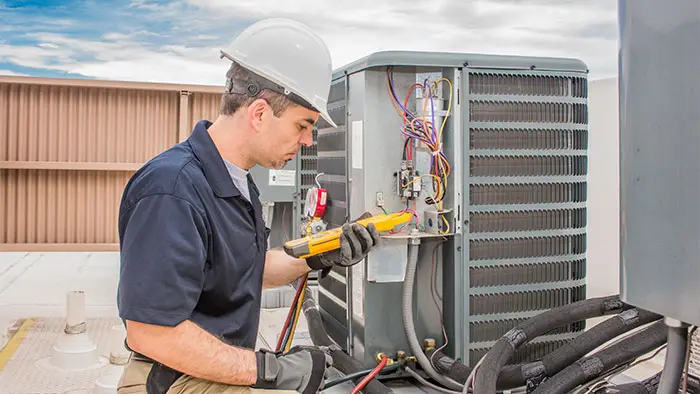Introduction
In the world of business, power is not just a luxury, it’s a necessity. A reliable power source is the lifeblood of any operation, and generators play a crucial role in ensuring that power is always available. But how well are you maintaining your generator? Are you aware of the common issues that can arise and how to troubleshoot them? This article will provide you with a comprehensive guide on generator maintenance and troubleshooting, ensuring your business never experiences unexpected downtime.
The Importance of Generator Maintenance
Why is generator maintenance so important? The answer is simple: a well-maintained generator is a reliable generator. Regular maintenance not only extends the lifespan of your generator but also ensures it operates at peak efficiency. It can prevent costly repairs and, most importantly, prevent power outages that could disrupt your business operations.
The Cost of Neglect
Neglecting generator maintenance can lead to a host of problems. For instance, a poorly maintained generator may fail to start during a power outage, leaving your business in the dark. It could also lead to more frequent and costly repairs. In the worst-case scenario, neglect could lead to a complete generator failure, requiring a costly replacement.
The Benefits of Regular Maintenance
On the other hand, regular maintenance can bring numerous benefits. It can extend the lifespan of your generator, ensuring it serves your business for many years. Regular maintenance can also improve the efficiency of your generator, helping you save on fuel costs. Most importantly, it can give you peace of mind, knowing that your generator will work when you need it most.
Regular Maintenance: The Key to Longevity
Regular maintenance is the key to ensuring your generator’s longevity. But what does regular maintenance entail? Here are some key tasks:
Regular Inspection
Regularly inspect your generator for any signs of wear and tear. Look for leaks, check the oil and coolant levels, and inspect the belts and hoses for any signs of deterioration. Regular inspection can help you catch potential problems early, before they lead to more serious issues.
Oil and Filter Change
Just like your car, your generator needs regular oil and filter changes. This ensures the engine runs smoothly and reduces the risk of overheating. The frequency of oil and filter changes will depend on your generator’s make and model, so be sure to check the manufacturer’s recommendations.
Coolant Check
Coolant levels should be checked regularly. Low coolant levels can cause the engine to overheat, leading to significant damage. Be sure to use the correct type of coolant for your generator, as using the wrong type can cause damage.
Battery Check
The battery should be checked and cleaned regularly. A weak or dead battery is one of the most common causes of generator failure. Regular battery checks can help you avoid this common problem.
Exercise Your Generator
Generators should be run periodically to ensure they will operate properly when needed. This also allows any potential issues to be identified and addressed before a power outage occurs. Running your generator regularly can also help to keep the engine parts lubricated, prevent carbon build-up, and ensure the generator produces a good quality of power.
Troubleshooting Common Generator Problems
Even with regular maintenance, problems can still arise. Here are some common generator problems and how to troubleshoot them:
Failure to Start
If your generator fails to start, the most common causes are a dead battery, low fuel levels, or a problem with the starter motor. Check these components and replace or repair as necessary. If the generator still won’t start, it may be a more serious issue that requires professional attention.
Overheating
If your generator is overheating, it could be due to low coolant levels, a blocked radiator, or a faulty thermostat. Check these components and rectify any issues. If the generator continues to overheat, it may be a more serious problem that requires professional attention.
Poor Power Output
If your generator is not producing enough power, it could be due to a problem with the alternator or a low fuel supply. Check these components and ensure your generator is properly fueled. If the generator still isn’t producing enough power, it may be a more serious issue that requires professional attention.
Unusual Noises
If your generator is making unusual noises, it could indicate a problem with the engine. This could be due to a lack of lubrication, a loose part, or a more serious mechanical issue. If your generator is making unusual noises, it’s best to have it checked by a professional.
Linking to Your Business Needs
Now that we’ve covered the basics of generator maintenance and troubleshooting, let’s link this to your business needs. How does this information apply to your specific type of generator? Here are some resources that can help:
- A Guide to Portable Generators: Operation, Features, and Safety Precautions
- Understanding Hydrogen Generators: What Really is a Hydrogen Generator?
- Natural Gas Generators: An Essential Guide
- What Are Tri-Fuel Portable Generators? An Introductory Guide
- Standby Generators: An Essential Guide
- What Kind of Oil Does a Generator Use?
- Diesel Generators: Everything You Need to Know
- How to Hook Up a Generator to Your House: A Step-by-Step Guide
Conclusion
In conclusion, generator maintenance and troubleshooting are critical aspects of ensuring your business operations run smoothly. By understanding the importance of regular maintenance and knowing how to troubleshoot common problems, you can ensure your generator is always ready to provide power when you need it most. Remember, a well-maintained generator is a reliable generator, and a reliable generator is good for business.




